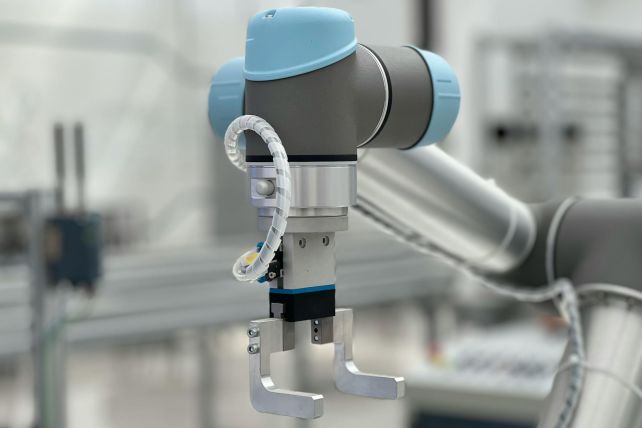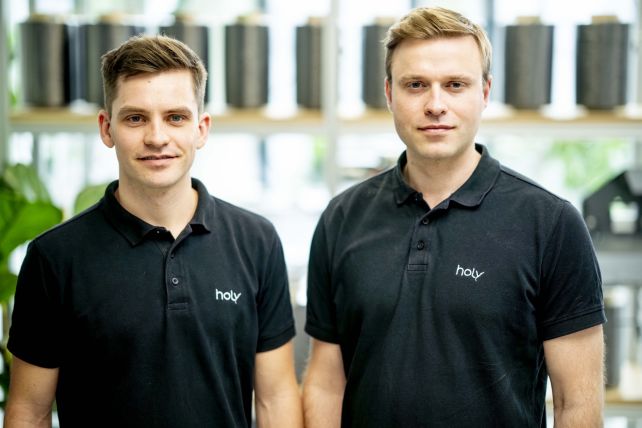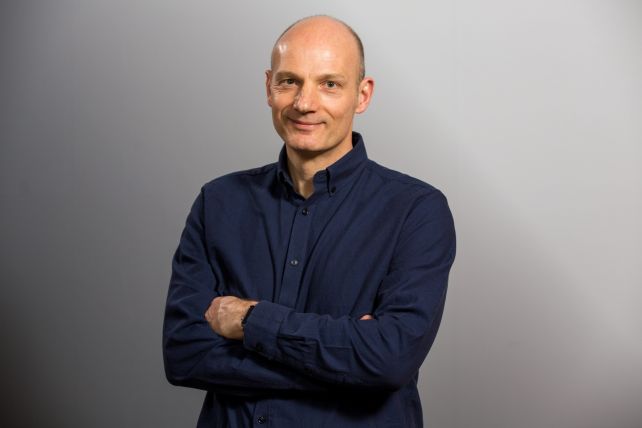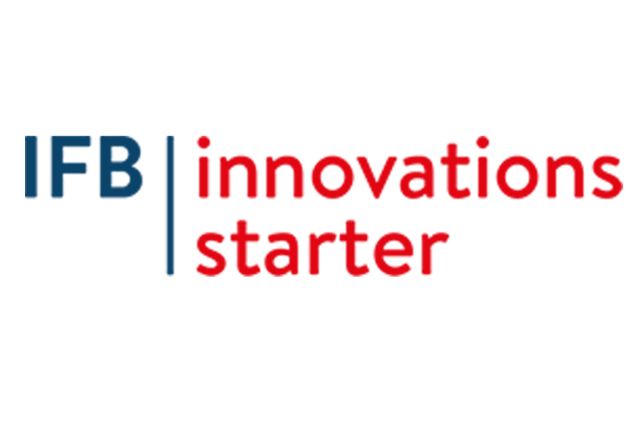Rabot Charge offers electricity at the lowest exchange price
High electricity bills despite falling prices on the electricity exchange. Many people are annoyed by this, as the usual electricity providers are either not passing on the savings to end customers or are doing so very slowly. The Hamburg-based startup Rabot Charge offers its users green electricity at varying prices that are based on the prices on the Leipzig electricity exchange and, according to the company's figures, are therefore cheaper than the fixed tariffs of the regional basic suppliers.

Investors rely on an experienced team
Since its formation in 2021, Rabot Charge has been able to convince around 35,000 electricity customers nationwide of its dynamic offer. Investors are also enthusiastic. The startup just raised 17.5 million euros in its Series A financing round in January. The largest investment came from Berlin venture capitalist HV Capital. All Iron and 9900 Capital also participated, as well as existing investors such as yabeo Impact, HTGF and vent.io. This round brought the total investment to around 25 million euros.
And this is no coincidence. Founders Jan Rabe and Maximilian Both are no newcomers to the market. In 2016, the two physicists already founded the tariff switching portal Wechselpilot and previously worked for large energy companies. Both joined the Management Board last year. Since then, Rabe has led the startup Rabot Charge as CEO and Sonja Rogojew as CPO. Rogojew has been with the company since the beginning and previously gained industry experience at Verivox and EnBW. CCO Konrad Schade brings know-how from his time at McKinsey and the e-commerce mail order company Wayfair. Tobias Mogge completes the C-level as COO. He also comes from the energy sector.
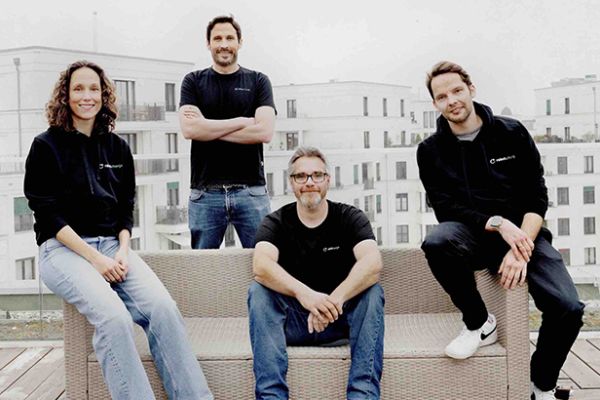
Charging the electric car at the most favorable time
Rabe and Both came up with the idea of dynamic tariffs as a result of the increase in electric vehicles. The growing demand for charging combined with rising electricity costs was a challenge. "A solution for how consumers could charge smartly was still missing," recalls Rabe. "We then developed an AI-based algorithm that optimises predictable electricity consumption with regard to daily electricity prices and available green electricity capacities. For example, EV charging processes can be started automatically when the exchange price is particularly favorable in a defined charging time window or when a lot of renewable energy is available."
With the increasing expansion of wind and solar energy, the supply of electrical energy and the prices on the electricity exchange have become all the more volatile. When there is little sunshine and hardly any wind, supply is scarce. Conversely, kilowatt hours are sometimes even traded at negative prices on the electricity exchange when the weather is particularly productive, and consumption is low. However, consumers have so far felt little of this. This is because suppliers sell their electricity at a working price per kilowatt hour agreed in advance for a certain period of time, even if prices on the exchange fall. One reason for this is that energy companies usually purchase their electricity via long-term contracts and are therefore often tied to old, expensive tariffs.
Another reason for the high electricity prices, despite the fact that stock market prices have long since fallen again, is the enormous ancillary costs. According to a survey by the Federal Network Agency and the Federal Cartel Office, the price for pure energy procurement only accounts for 40.6 percent of the total electricity bill. Grid fees account for just under 20 percent and taxes for a further 20 percent. And finally, retailers collect another 11.6 percent.
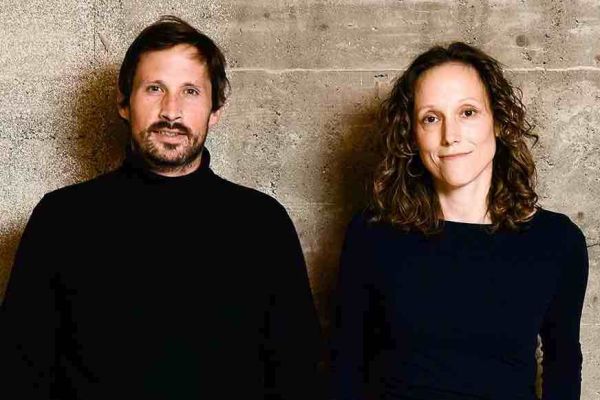
Rabot Charge speaks of 35% savings
"Rabot Charge buys the cheapest green electricity directly from the electricity exchange every day," promises founder Rabe. Prices and consumption can be tracked daily on an app. However, Rabot Charge also has to add the high ancillary costs to the net exchange price. Nevertheless, Rabot Charge puts the savings for customers at an average of 35 percent compared to the tariffs of the basic suppliers. Rabo Charge retains 20 percent of this difference as commission. The monthly basic fee is 4.99 euros.
A look at the statistics shows that Rabo Charge's tariffs were well below average last year. According to an analysis by the German Association of Energy and Water Industries (BDEW), the average final price per kilowatt hour for households was 45.73 cents. By contrast, Rabot Charge's prices fluctuated between 30.74 cents and 23.62 cents on a monthly average in 2023.

Dynamic tariffs are becoming mandatory
However, Rabot Charge is no longer alone on the market with this innovative and economical model. Tibber from Norway and Octopus Energy, based in London, also offer similar conditions in Germany. And the big players such as Eon and Vattenfall have also already jumped on the bandwagon. Finally, from 2025, all electricity suppliers in Germany will be legally obliged to offer dynamic tariffs. In this way, the German government hopes to stabilise the utilisation of the grid and improve the efficient use of renewable energies.
Dynamic tariffs still suffer from at least one handicap. In order to really exploit the savings potential resulting from the high price fluctuations on the exchange, a smart meter is essential for recording consumption at the exact time. However, these are still a rarity in Germany. Only from 2025 will households have the right to be equipped with a smart meter on request.
Together with Tibber and Octopus Energy, Rabot Charge has now gained the two major distribution network operators Netze BW and EWE Netz as pilot project partners. The conversion to digital metering is to be started with them in the near future. Hamburg is already one step ahead of the trend. The municipal operator Stromnetz Hamburg began rolling out smart meters four years ago. This makes the Hanseatic city an ideal location for Rabot Charge's innovative concept. Founder Jan Rabe sees enormous potential for his company in Hamburg in particular:


